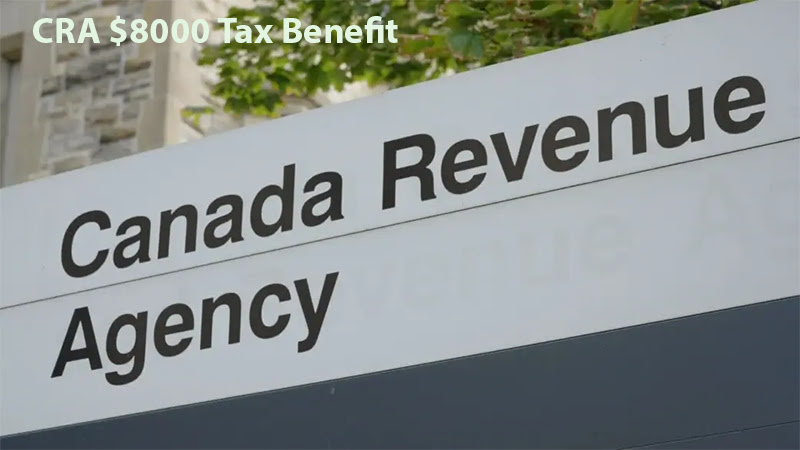The Canadian housing market presents an imposing test for some, particularly first-time homebuyers who face soaring costs and severe home loan necessities. In order to address these issues, the First Home Savings Account (FHSA) was launched in 2023 by the government of Canada. This novel registered savings plan aims to make homeownership more accessible to Canadians entering the housing market for the first time by providing substantial financial benefits. The program, as stated by the Canada Revenue Agency (CRA),
CRA $8000 Tax Benefit 2024
With the cost of a home in Canada hovering around $716,000 as of late 2023, the FHSA may be able to significantly expedite the process of accumulating a substantial down payment for potential buyers. The program gives monetary alleviation through charge reserve funds and the intensified development of untaxed speculations inside the record. In the face of an uncertain economic climate, this initiative is a significant government effort to encourage homeownership and provide a structured saving mechanism. As the FHSA program develops, policymakers and monetary organizations the same will intently screen its effect on the first-time homebuyer demographic.
Check Also:-
First Home Savings Account Details
- These contributions are not just duty deductible, decreasing the patron’s available pay for the year, yet they likewise draw in an administration match of 25%, up to $10,000 over the record’s lifetime.
- With the carry-forward room, users who may miss a year or wish to maximize their contributions in subsequent years can make contributions that go above annual limits.
Types of FHSAs
- Depositary FHSA: Commonly includes accounts that hold fluid resources like cash or guaranteed investment certificates (GICs).
- Trusteed FHSA: Managed by a trust company and can contain a variety of qualified investments, such as mutual funds and bonds.
- Insured FHSA: Centers around protected items and works under an annuity contract with an authorized supplier.
Eligibility Requirements for FHSA
Age Limit: Individuals must be aged 18 to 71 to be eligible. In provinces where the legal age to enter into contracts is 19, the age requirement is raised to 19.
Residency: In order to ensure that the FHSA’s benefits are utilized in the Canadian housing market, applicants must be current Canadian residents.
First-Time Home Buyer Status: To be eligible, individuals must not have owned a primary residence in the last four years or in the current year. This applies to properties possessed independently or mutually with a spouse or common-law partner.
Additional Criteria: Candidates shouldn’t have a spouse or common-law partner who right now claims a home except if they freely qualify under the initial time home purchaser status. This is to keep up with the respectability of the FHSA’s motivation to help certified first-time purchasers.
Check Also:-
Contribution Limits & Tax Benefits of the FHSA
Annual Contribution Limits: The FHSA allows individuals to contribute up to $8,000 every year. This limit is intended to significantly boost first-time homebuyers’ savings efforts, allowing them to accumulate funds more quickly. Assume the yearly commitment limit isn’t arrived at in a given year.
Lifetime Contribution Limits: The account provides long-term support for saving for a home purchase thanks to this cumulative limit. Contingent upon their monetary procedure and conditions, donors can either boost their commitments more than five years at $8,000 each year or spread out their commitments over a more extended period.
Tax Benefits: Commitments to a FHSA are tax-deductible, decreasing the contributor’s taxable income for the year. For instance, if a person contributes the full $8,000 in a single year, this amount is subtracted from their total income, potentially reducing their overall tax liability.
Government Matching Contributions: Additionally, the government matches FHSA contributions up to a lifetime maximum of $10,000 with a 25% match. By adding “free money” to the account and increasing the overall value of the contributions, this matching benefit effectively boosts savings.
Steps to Open an FHSA in Canada
- Check Qualification for the FHSA prior to beginning the application process.
- Choose a financial institution that offers FHSAs, such as a bank, credit union, trust company, or insurance company.
- Find the issuer that best suits your needs and budget by comparing their offerings in terms of investment options, services, and fees.
- Gather the necessary documentation, including proof of your date of birth and your Social Security Number (SIN).
- In order for your chosen issuer to determine your eligibility, you must provide the required information and any additional supporting documents.
- Follow the guarantor’s process to authoritatively open your FHSA. In order to ensure that your savings are transferred in accordance with your wishes, you can select a beneficiary to receive the account balance in the event of your death.
- To get the most out of your FHSA, start contributing up to $8,000 per year to maximize your savings potential.
- Use Timetable 15 to report your FHSA commitments and exercises on your personal expense form, regardless of whether no commitments were made that year.
- To get the most out of your savings and growth, regularly evaluate and adjust your investment choices and contribution strategy.
Check Also:-
Final Words
Directly following monetary difficulties and recuperation endeavors, the Canadian government has acquainted different measures with help its residents. One prime example of these programs is the CRA’s $8000 Tax Benefit, which aims to encourage savings and investment while lowering the tax burden on Canadians. Canadian citizens have a once in a lifetime chance to help their reserve funds and lower their taxation rate, because of the Canada Revenue Agency’s (CRA) $8000 Tax reduction. This significant tax break is intended to provide immediate tax relief while also assisting Canadians in securing their financial future.
